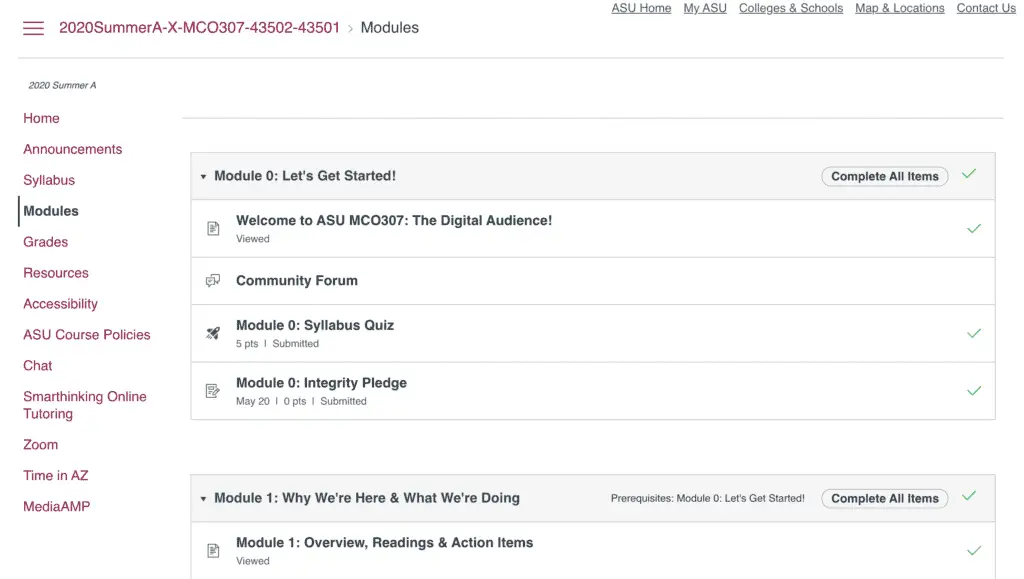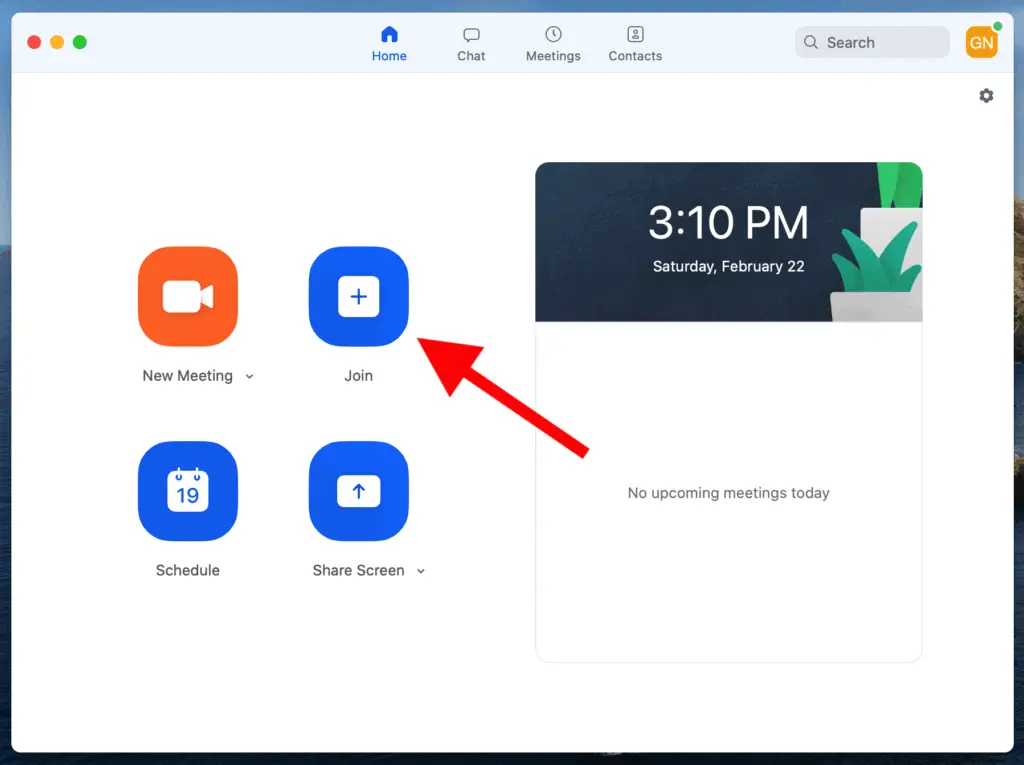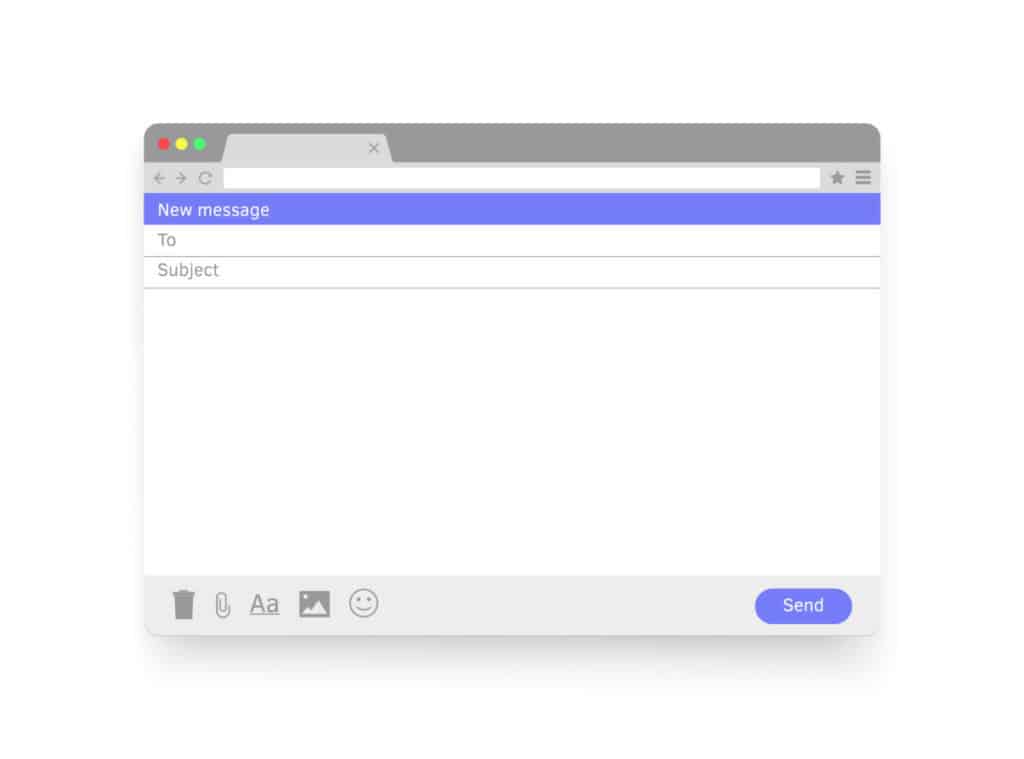There is a lot that you need to know about online classes when first starting. At first, everything can seem complicated and confusing. I felt like I had no idea what I was doing when I first began taking online courses.
I realize that many of you don’t know how online classes work and have a lot of questions. As someone who has taken a lot of online courses, I am here to answer your questions and tell you all you need to know about online classes.
Click hereto check out the most popular products for college students.
Types of courses
In-person (or traditional)
These are your traditional in-person courses.
Online (or remote)
These courses are entirely online (which I will discuss in the post).
Hybrid
Hybrid courses are a mixture of both. You will do some work (often most) online, but most go into class for some aspects (such as labs or to give a presentation/speech).
Check out all the benefits of Prime Student. Click here
to sign up for Prime Student.
How do online classes work?
People tend to believe that online classes are widely different from in-person classes. They are not. In fact, they are incredibly similar. You cover the same material, and they are taught by knowledgeable credentialed professors (often the same professors that teach the school’s in-person classes).
It is another big misconception that online classes are easier than traditional classes. They are not. Online courses offer flexibility, but they will require the same (approximately) amount of time and work as traditional classes.
Here are the main components of online courses:
Online classes use a Learning Management System

You log onto a specific Learning Management System (LMS), such as Blackboard or Canvas, which you can find on the school’s website, where you will access all course materials. There you find the syllabus, announcements, all assignments, discussion boards, and lectures.
If your school uses Canvas LMS, check out my post: How to Use Canvas: Walkthrough for Students.
Do online classes have set times?
Online classes do not usually have set times. Students aren’t expected to “attend” class at specific times. Typically lectures are recorded, and students have at least a day to complete a discussion prompt or take a test.
Most communication in the course will be primarily asynchronous. That means you don’t expect a response immediately, such as with discussion boards and email.
However, some courses may have a synchronous component with meetings or lectures over video or audio conference calls.
But don’t worry, specific time requirements are rare. Usually, you are given options to schedule a time for group discussion or office hours.
Coursework
Online courses have the same type of coursework as in-person courses. These include:
Readings
Just as in any course, you have a textbook and required readings.
Lectures
You will also have lectures from your professor. These are normally a video that is available. The frequency and length of the lectures will vary.
Assignments
You will have the same types of assignments: worksheets, papers, projects, etc…
These are normally pretty self-paced, so pay close attention to the due dates.
Group Work
Don’t think that you will be exempt from group work. You won’t!
I have had a lot of group projects in my online courses, and I have discovered there are pluses and minuses to having group projects entirely online.
Some pluses are that it can be easier to meet virtually since everyone doesn’t have to actually be in the same location. It is also very convenient to make a Google Doc for the entire group to work on.
The minuses are that it can be harder to get to know your group members, and you can’t track down a group member if they don’t respond or aren’t doing their portion of the work (you can’t just talk to them in class).
To combat these challenges and succeed in your online classes, it is important that you frequently check in with each other. Overcommunication is an essential element of success in online classes.
Exams
You will take tests and final exams. You may be wondering, “how do online exams work?”.
Online exams are generally timed. Some will be open-book, others will allow notes, and some do not allow any material.
While getting to take open-book exams may seem like it would be easier, professors often either make the time of the test short enough that you won’t have time to look up all the answers, or they make the questions more in-depth to show that you understand the material.
If the test is not meant to be open-book, most professors do not just use an honor system that you aren’t cheating; they require the exam to be proctored. Proctored exams can be in-person, requiring you to visit a testing site (check the course) or, more likely, virtual.
A virtually proctored exam is when your browser is locked down, and you (and your surroundings) are recorded to ensure that you are not cheating.
You will be told in advance if your exam is proctored or not and what software you are expected to use.
Discussions
You won’t be engaging in discussions in class, but you will still have class discussions.
The format of these will vary with different courses and instructors; it can mean replying to a prompt by posting on a discussion board and then replying to your classmates’ posts or with a scheduled video chat with group members.
What do I need for online classes?
- your books
- computer
 (with a working webcam
(with a working webcam and microphone)
and microphone) - reliable internet connection
- required programs or software
For a more comprehensive list, check out: Everything You Need for Online College: School Supply List .
.
What tech is required for online classes?
Often, you only need a computer , internet, and a word processor (like Microsoft Word).
, internet, and a word processor (like Microsoft Word).
Also, Blackboard and Canvas work better on Google Chrome or Firefox, so you will want to have one of these internet browsers on your computer.
From there, each class will be different, but they are normally very upfront about what programs you will be using, so you have plenty of time to learn what you need to.
Commonly used programs are ProctorU, RPNow, Lockdown Browser, Zoom, and Youtube.
For exams:
ProctorU, RPNow, Lockdown Browser are all used for exams.
ProctorU and RPNow are both used for proctored exams. Most of the time, your teacher will provide specific instructions, and sometimes the program will walk you through how to use it (RPNow is pretty good at making it as self-explanatory as possible). Plus, they have help guides and videos to coach you through it.
At least make sure that you know what you need (you may need to show ID) and/or are allowed to have for an exam (some allow a single page of notes that you need to show the camera, some allow calculators, some allow open books, some times nothing is allowed). You will want to have this information when you are studying. If in doubt, ask your teacher!
Lockdown Browser is exactly that. It is a browser that locks down your whole computer so that you cannot reference course materials or look at the internet. It is super easy to use; you literally just download the browser and use it like you would any other.
Zoom

Zoom can be used for group discussions, lectures, and office hours.
Check out our other Zoom posts for help setting up your school account or technical support help in the basics of Zoom.
or technical support help in the basics of Zoom.
Youtube
If you are giving presentations, you may record them and put them on youtube. You can use the video program on your computer (such as QuickTime Player for Mac) to record yourself and then make an account and upload it to youtube.
What if I am not tech-savvy?
It sounds like a lot when I write it all out, but I promise you it is easier than you think!
I am not a tech-savvy person. The first time (or okay, if I’m being honest the first couple several times) that I use some new tech, I am so anxious! I always think it will be impossible! I feel doomed! But it always works out fine.
The great thing is, once you learn to use it, you are good to go. You will most likely need to use it for the exact same thing next time or in another course. You don’t have to master it. Just learn what you need to in order to do your assignment or exam, and you are all set to succeed in your online classes!
I won’t lie, you will have to learn how to use these applications, but I promise it won’t be as bad or hard as you think it will be!
Look at the site’s guides, ask your professor, call the school’s tech department (this is a good number to have on hand), or reach out to other students for help. You can also comment below or message me, and I’d be happy to help. If I don’t know the answer, I’ll help you find it.
I’m willing to bet big money that after reading about the tech aspect of online schooling, you think it will be the biggest challenge. That is what I thought. I was wrong…
What is the biggest challenge of online classes?
The biggest challenge is that online courses require a lot of self-motivation, discipline, and time management skills.
There aren’t set times for when you need to do things. This can be a positive, but it means that you have to be responsible to make sure that you still do the work and study. You have to take the initiative!
Your professor won’t constantly remind you of upcoming assignments (there will be some announcements). Make sure that you make a schedule and set aside the time to complete the assignments. Then make sure that you have the discipline and motivation to actually do the work.
Procrastination is even easier with online classes (“Oh, just one more episode on Netflix, I can watch the lecture later, and the paper’s not due till Friday,” I’ve been there). However, if you miss due dates or fall behind, it will be difficult to catch up.
I wouldn’t let this deter you. You can learn these skills and develop good habits. Once you get used to it, I think you will love how self-paced online courses are (I do!).
Check out our tips for starting out a new semester strong:
- How to Mentally Prepare for a New Semester

- What to Do Before the New Semester Starts

- New Semester Checklist: How to Start the Semester Off Right

Advantages of online classes
Look, are there challenges? Yes. But there are incredible benefits too!
Online courses let you learn whenever and wherever works best for you. With my illness, I would never have been able to get my degree if I had to go to campus for every course. Online courses let me go to college in my living room (I’ll be honest, “going” to school in my PJs is one of my favorite parts!).
They gave me the flexibility I needed to work when I was feeling well enough. That’s the great thing about online courses; you decide when to watch the lectures and do the assignments. You can even work ahead.
This freedom is great for people that are also trying to balance work and/or families.
Online learning also lets you enroll in top degree programs across the country that you might not have been able to otherwise.
How do you interact with your professor and peers in online classes?

Students communicate with both their professor and their peers primarily through email and the class discussions boards.
Some courses also have required video chat discussion groups and some learning management systems also have an online chat feature.
In online classes, it is important that you take the initiative to communicate with your peers and your professor. Don’t be afraid to email them first.
When emailing or communicating on the discussion forums, keep your messages professional. This means proper grammar and spelling (not texting language) and nothing too casual. For more advice on the do’s and don’ts of email, check out: How to Email Your Professor .
.
It can also be a good idea to attend your professor’s office hours (usually they are over Zoom) so that you can introduce yourself.
How do I do well in online classes?
The tips on how to succeed in online classes are pretty much going to be the same as how to succeed in traditional classes.
Stay up to date
- check the course daily (especially check the announcements section)
- check emails from the instructor (this means checking your school-sponsored email address such as @asu.edu (if you have one))
Make a schedule
Create a study and/or assignment schedule to help you stay on track and manage your time.
In my post about how to start the semester off right , I talk about the importance of immediately writing down all the due dates in your phone or planner as soon the course begins.
, I talk about the importance of immediately writing down all the due dates in your phone or planner as soon the course begins.
Then break up big projects (such as a long paper) into smaller chunks and set due dates for those to make sure you aren’t waiting for the last minute to do your assignments.
At the start of each week, I write down what I need to do each day (Read Chapter 1, message group members, start paper, etc…).
You may want to consider going even further and blocking out specific times to do your schoolwork. If you work best in the morning, schedule it then. If you need to work when your kids aren’t around, then schedule the time when they are at school or asleep.
Find when works best for you, but make sure to schedule time for your schoolwork.
Create a study space
Having a place where you can do your work will make studying and staying organized much easier!
Keep your textbook, notes, calculator , etc… there. Have everything that you will need there so you can be productive.
, etc… there. Have everything that you will need there so you can be productive.
Eliminate distractions
Make sure that you pick a study space that is free of distractions.
If you need it to be quiet to read and study (I do!), then pick somewhere where there won’t be a lot of commotion. You can also check out my tips for How to Study When It’s Noisy .
.
Make sure that your laptop is charged and put away your phone (don’t even tempt yourself).
is charged and put away your phone (don’t even tempt yourself).
Get yourself drinks and a snack too, so that you have no reason to get up.
When you go to your study space, you will know it is time to buckle down and get your work done!
Don’t procrastinate
I know easier said than done. I too fall into this (did I mention the Netflix rationale?).
I have had to learn not to procrastinate with schoolwork because I could not feel well the day something is due, and then I am screwed.
Following the previous tips (make a schedule and eliminate distractions) has been most helpful for me to learn to stop procrastinating. If that fails, I bribe myself (write this post, and then you can have a cookie or watch another Grace and Frankie episode).
Do whatever you gotta do to break this habit because not waiting till the last minute to do assignments will be the best thing you can do to succeed in your online classes!
Learn the material
Don’t take advantage of the fact that you don’t have to actually “go to class” and skip over the readings or lectures. You have to learn the material if you want to succeed in your online classes.
Turn assignments in on time
Do all your assignments and turn them in on time.
Do not wait until the last minute to turn assignments in! You may run into tech problems when submitting an assignment, and there will need to be time to address these problems and get help before the assignment is due. Most teachers do not consider tech problems an excuse for a late assignment. Turn it in in advance!
Take notes of lectures
This is actually easier online since you can pause lectures and re-watch parts that you don’t fully understand the first time.
Ask for help!
If you don’t understand something or have questions, ask for help! Ask the other students or message your professor. In my experience, most professors want to help you succeed in their class. They are happy to help if you don’t understand the material.
I love online classes, and I would recommend them for everyone, but especially for people with extenuating circumstances that they need to work around, such as illnesses, jobs, or families.
Now that you know how online classes work, you can stop worrying and get excited about online classes!
If you found this post about all you need to know about online classes helpful, please share it with your friends!
Learn more about how to prepare for online classes.



